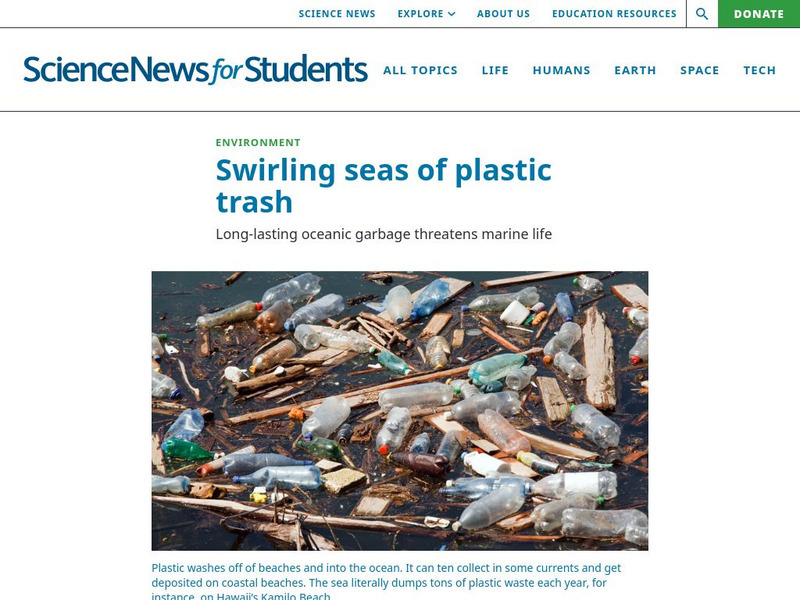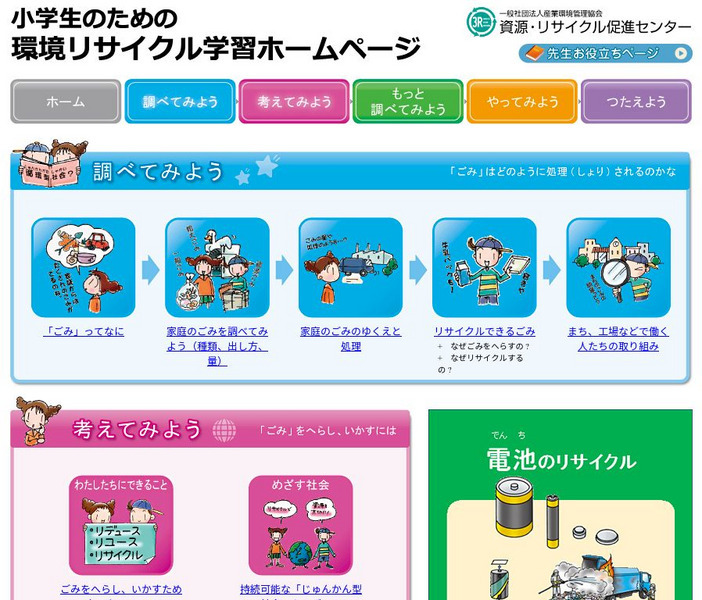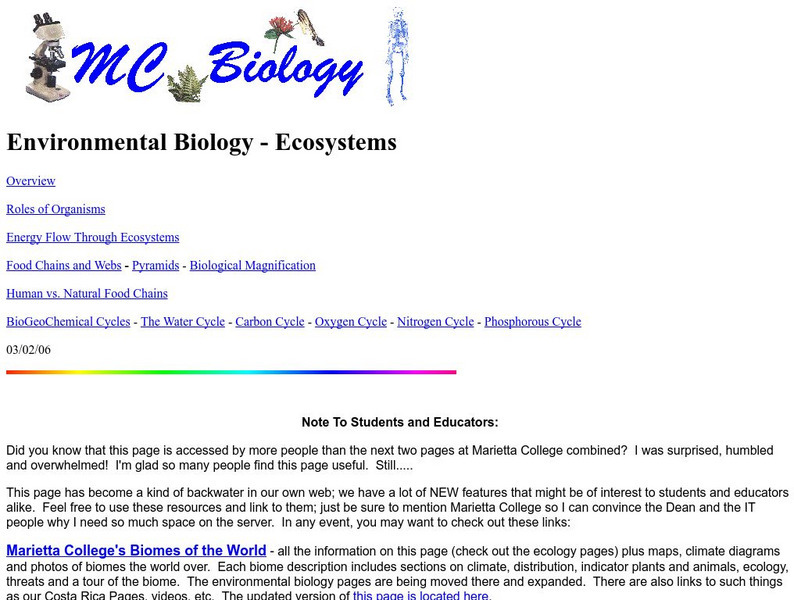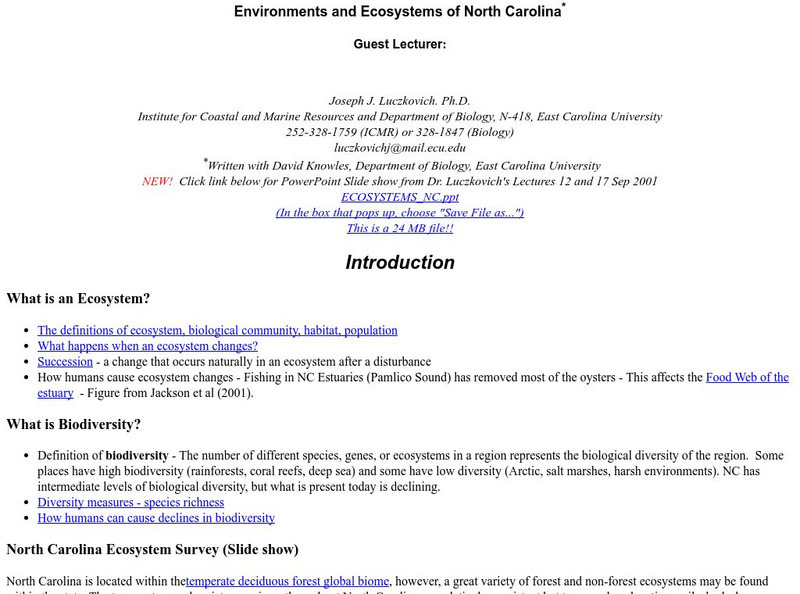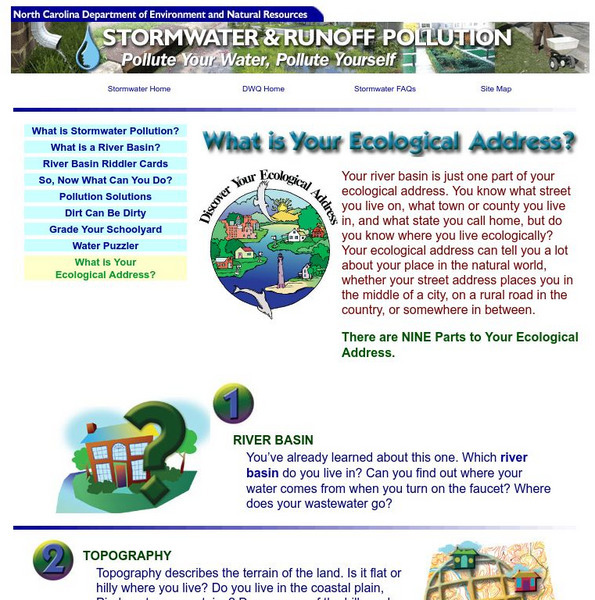FT Exploring
Ft Exploring: Energy Pyramid and Food Chains
This illustrated guide to food chains and ecological pyramids will help clarify how energy flows through an ecosystem.
Society for Science and the Public
Science News for Students: Swirling Seas of Plastic Trash
Describes the multitude of plastic trash scientists have found on a beach in Hawaii and in the oceans. Explains what a gyre is, and how plastic trash gets trapped in the eye of a gyre. Looks at the serious impact plastic materials have...
PBS
Pbs Kids: Martha Speaks: Can You Dig It?
Practice reading with Martha with this illustrated, read-along story about the environment, habitats, and ecosystems.
PBS
Pbs Kids: Cyberchase, Rescue Ecotopia
A game for kids to understand the basics of an ecosystem and keeping it balanced. A brief description of the animals and how they fit within the system is provided before the game begins.
Oswego City School District
Regents Prep: Ecosystems/communities
Abiotic factors vary in the environment and determining the types and numbers of organisms that exist in that environment. Factors which determine the types and numbers of organisms of a species in an ecosystem are called limiting...
TED Talks
Ted: Ted Ed: Feedback Loops: How Nature Gets Its Rhythms
Anje-Margriet Neutel describes some common positive and negative feedback loops, examining how an ecosystem's many loops come together to make its 'trademark sound.' [5:11]
TED Talks
Ted: Ted Ed: What's Hidden Among the Tallest Trees on Earth?
Wendell Oshiro tells the story of Stephen Sillett's bold exploration of the canopy of an ancient redwood and details some of the fascinating discoveries he made. [4:47]
Open Curriculum
Open Curriculum: Science of Ecology
This illustrated article helps students identify levels of organization in ecology.
University of Michigan
University of Michigan: The Concept of the Ecosystem
Lesson looks at the definition of an ecosystem, biogeochemical cycles, and factors responsible for the differences between ecosystems.
Other
Reef Base
This is a database on coral reefs where you can access coral reef data, take quizzes on corals, view images, get maps of reefs and more.
Other
Clean Japan Center: Recycling
Japanese content for elementary students. Helps younger children explore environmental issues. Topics include recyling, ozone destruction, global warming, and stewardship of natural resources. Good illustrations. Also includes reading...
Other
The Dirty Dozen Persistent Organic Pollutants
Use this site to learn about the effects of persistent organic pollutants on the ecology of Antarctic coastal waters. Information is presented for both teacher and student researcher.
Other
Marietta College: Ecosystems
Complete illustrated discussion of energy flow within ecosystems, including discussions of trophic levels, ecological pyramids, food chains and webs, biological magnification, and cycles.
Other
Environments and Ecosystems of North Carolina
North Carolina is located within the temperate deciduous forest global biome, however, a great variety of forest and non-forest ecosystems may be found within the state. The temperature and moisture regimes throughout North Carolina are...
Other
College of Du Page: Energy in an Ecosystem
Ecosystems contain two kinds of commodities: matter (nutrients) and energy. Nutrients cycle through the ecosystem, available for repeated use by organisms. These cycles of use and reuse are called biogeochemical cycles. Energy instead is...
Other
Nc Department of Energy and Natural Resources: What Is Your Ecological Address?
Your river basin is just one part of your ecological address. Your ecological address can tell you a lot about your place in the natural world, whether your street address places you in the middle of a city, on a rural road in the...
The College Board
The College Board: Ap Biology 2007 Scoring Guidelines [Pdf]
This scoring guide can be used as a study guide, provding examples and exemplary student responses. The topic covered is energy flow in ecosystems.
US Geological Survey
Mercury in the Geochemical Cycle
Mercury in the geochemical cycle ultimately affects the food chain. Learn about this and its effect on the Everglades.
US Geological Survey
Lake Pontchartrain Basin Foundation: Watershed
Explore the characteristics of a watershed through these multiple intelligences learning activities. Activities will help students define a watershed as well as read the features on a topographic map. Site also includes background...
US Geological Survey
Lake Pontchartrain Basin Foundation: Ecosystems in Delicate Balance
Learning activities to investigate how organisms interact in a functioning ecosystem. Students will explore the role organisms play in food chains and preserving biodiversity in ecosystems. Lake Pontchartrain Basin ecosystem is featured...
Everything ESL
Everything Esl: Forest, Deserts and Grasslands
Biomes and Ecosystems unit will increase the interest of the ELL students. Lessons are based on the TESOL, ESL standards.
McGraw Hill
Glencoe Biology: Principles of Ecology: Chapter Test Practice
A set of fifteen comprehension questions which test over various ecological concepts.
McGraw Hill
Glencoe Biology: Biodiversity: Self Check Quiz
These five multiple-choice questions can be used for a quick, self-checking assessment over biodiversity.
Scholastic
Scholastic: Study Jams! Science: Ecosystems: Aquatic Ecosystems
A video and a short multiple-choice quiz on the topic of aquatic ecosystems. It discusses the difference between freshwater and saltwater ecosystems, then explains what the three ecozones are in a marine ecosystem.

